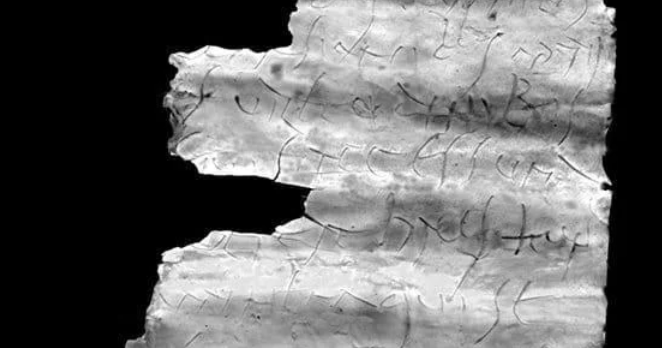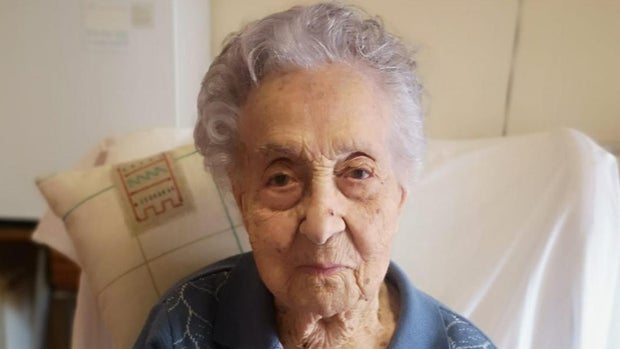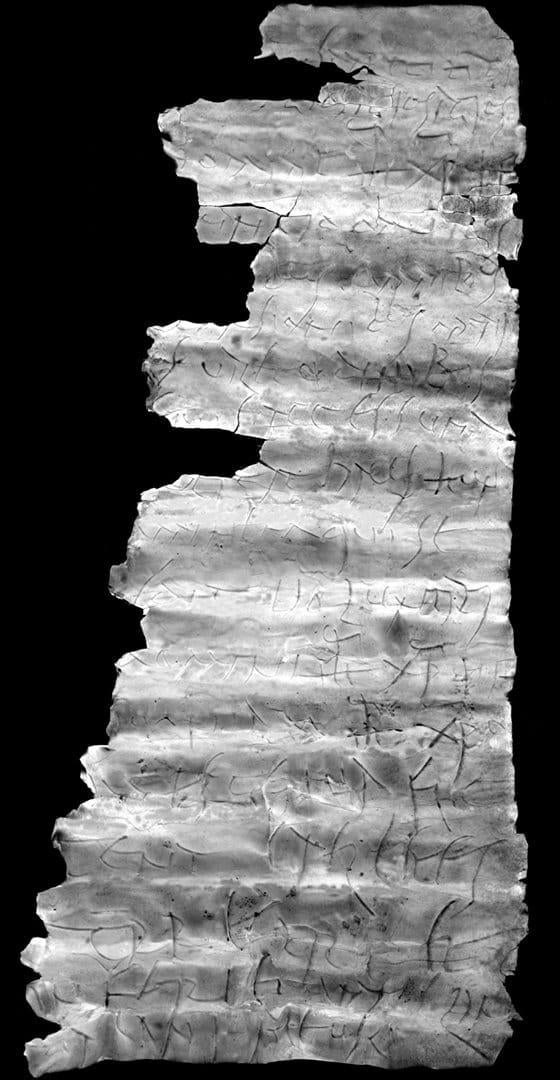CBS News
Spain’s Maria Branyas Morera, world’s oldest living person, dies at 117, her family says

The world’s oldest living person, Spain’s Maria Branyas Morera, who was born in the United States and lived through two world wars, the Spanish Civil War, the 1918 flu pandemic and the COVID pandemic, has died at the age of 117, her family said Tuesday.
“Maria Branyas has left us. She died as she wished: in her sleep, peacefully and without pain,” her family wrote on her account on social network X.
“We will always remember her for her advice and kindness,” they said.
Guinness World Records
Branyas, who had lived for the last two decades in the Santa Maria del Tura nursing home in the town of Olot in northeastern Spain, had warned in a post on Tuesday that she felt “weak”.
“The time is near. Don’t cry, I don’t like tears. And above all, don’t suffer for me. Wherever I go, I will be happy,” she added in the account that is run by her family.
Guinness World Records had officially acknowledged Branyas’s status as the world’s oldest person in January 2023 following the death of French nun Lucile Randon at the age of 118.
In the wake of Branyas’s death, the oldest living person in the world is Japan’s Tomiko Itooka, who was born on May 23, 1908 and is 116 years old, according to the U.S. Gerontology Research Group.
Branyas got Covid-19 in 2020 just weeks after ringing in her 113th birthday and was confined to her room at the home but made a full recovery.
Her youngest daughter, Rosa Moret, once attributed her mother’s longevity to “genetics”.
“She has never gone to the hospital, she has never broken any bones, she is fine, she has no pain,” Moret told regional Catalan television in 2023.
Branyas celebrated her 116th birthday in March 2023 at her residence home Santa Maria del Tura in Olot, Catalonia, Spain, surrounded by friends, fans and her 78-year-old daughter Rosa. Branyas was lucid and spoke fondly about her childhood, said Ben Meyers, CEO of LongeviQuest, a longevity company that unites super longevity researchers worldwide.
Meyers, who was with her at the residence home, said she was touched by greetings from her many fans around the world.
“This warms my heart,” Branyas said.
Born on March 4, 1907, in California, one year after her parents emigrated to the U.S., Branyas spent the first few years of her life in San Francisco, according to Guinness. Eight years later, the family decided to return to Spain, where they settled in Catalonia. She married Joan Moret in 1931, according to Guinness World Records, and had three children, 11 grandchildren, and 13 great-grandchildren.
Like most, she had her share of triumphs and tragedies. Among them, losing her father on the voyage from the U.S. to Spain from pulmonary tuberculosis, according to Guinness World Records.
Still, she told her social media followers, “Never, ever, become a bitter person no matter what.”
Cara Tabachnick and
contributed to this report.
CBS News
Ancient inscription could rewrite history of Christianity north of Italy, archaeologists say

Archaeologists have discovered an inscribed silver amulet that one theologian now says may rewrite the history of Christianity north of the Alps mountain range.
The inscribed amulet was found buried in a grave in Frankfurt, Germany in 2018, according to a news release from the city. The amulet is just over an inch in size, the city said, with an inscribed thin silver foil rolled up inside. It took years to determine what the inscription said: It had to be deciphered by a computer scan because the foil was too fragile to unroll. The so-called “Frankfurt Silver Inscription” was presented to the public earlier in December.
The inscription was determined to be a statement of faith in Jesus Christ, written in Latin. The statement shows that the wearer “was clearly a devout Christian, which is absolutely unusual for this time,” the city said.
Researchers dated the grave where the amulet was found to between 230 and 270 AD. This is the earliest evidence of Christianity north of the Alps, the city said: All other finds are several decades younger, with “reliable evidence” of the religion in the region dating back to the 4th century.
Leibniz Institute for Archaeology in Mainz
The inscription mentions no religion besides Christianity, which researchers said is unusual. Up until the 5th century, these kind of amulets “always contain a mixture of different faiths,” such as Judaism or paganism. Instead, it is entirely based on Christianity. At one point the invocation “Holy, holy, holy!” is present. Researchers previously had dated that invocation no earlier than the 4th century. The amulet also included quotations from the Bible used by Christians at that time.
“The ‘Frankfurt Inscription’ is a scientific sensation,” city mayor Mike Josef said in a translated statement. “It will force us to turn back the history of Christianity in Frankfurt and far beyond by around 50 to 100 years. The first Christian find north of the Alps comes from our city: we can be proud of that, especially now, so close to Christmas. Those involved have done a great job.”
Researchers said that this find will lead to a reevaluation of the burial ground where the amulet was uncovered. It will also lead to a revision of ideas about Christianity north of the Alps.
German church historian Ulrich Volp told the Evangelical Press Service that the amulet can be used to help understand how Christianity spread through the Roman Empire in the 3rd century, even amid persecution.
“The significance of the discovery can hardly be overestimated,” Volp said.
The news comes about six months after a experts in Germany said a newly deciphered manuscript dating back 1,600 years was determined to be the oldest record of Jesus Christ’s childhood.
CBS News
Accelerating semiconductor innovation with AI and data insights

Watch CBS News
Be the first to know
Get browser notifications for breaking news, live events, and exclusive reporting.
CBS News
New CBS News documentary explores efforts to bridge divides between Muslims and Jews

Watch CBS News
Be the first to know
Get browser notifications for breaking news, live events, and exclusive reporting.



